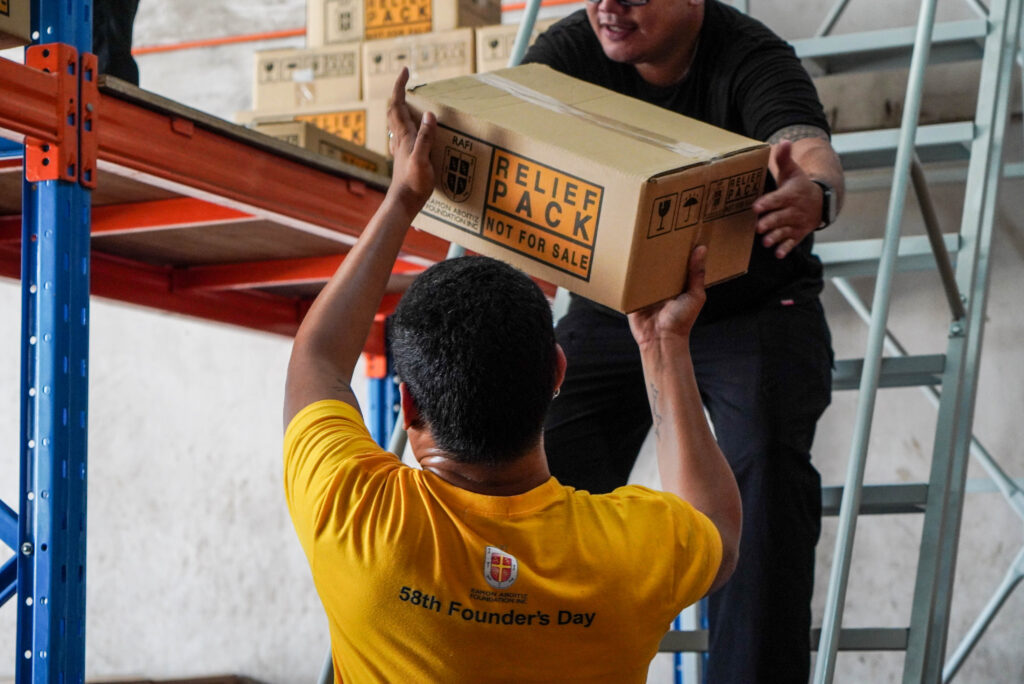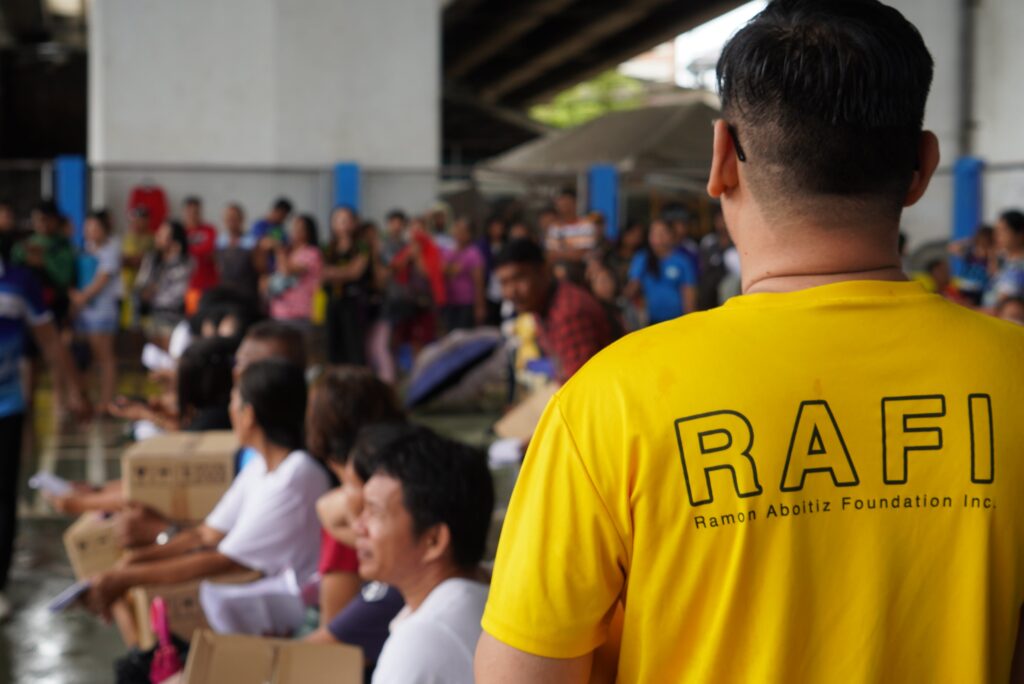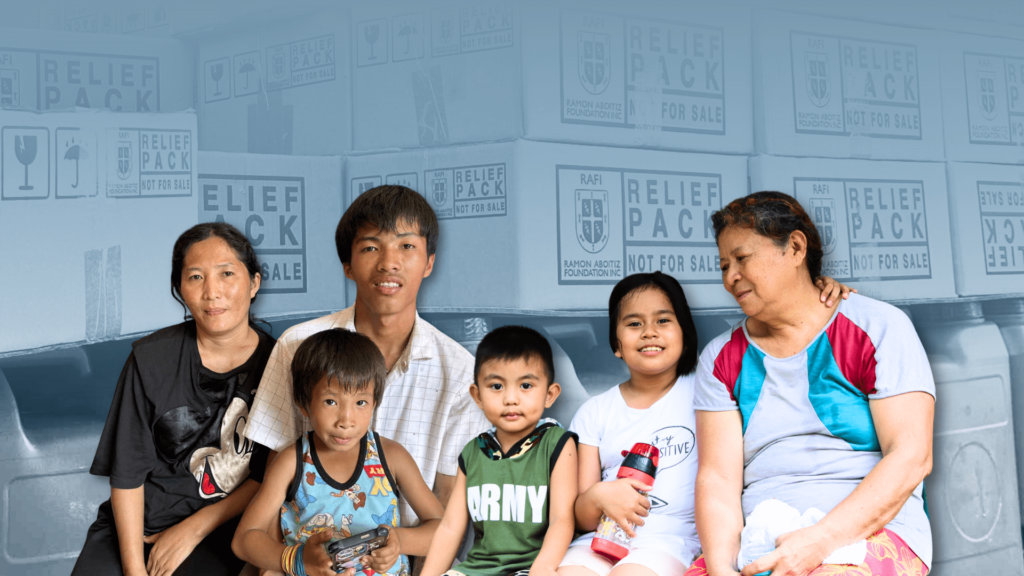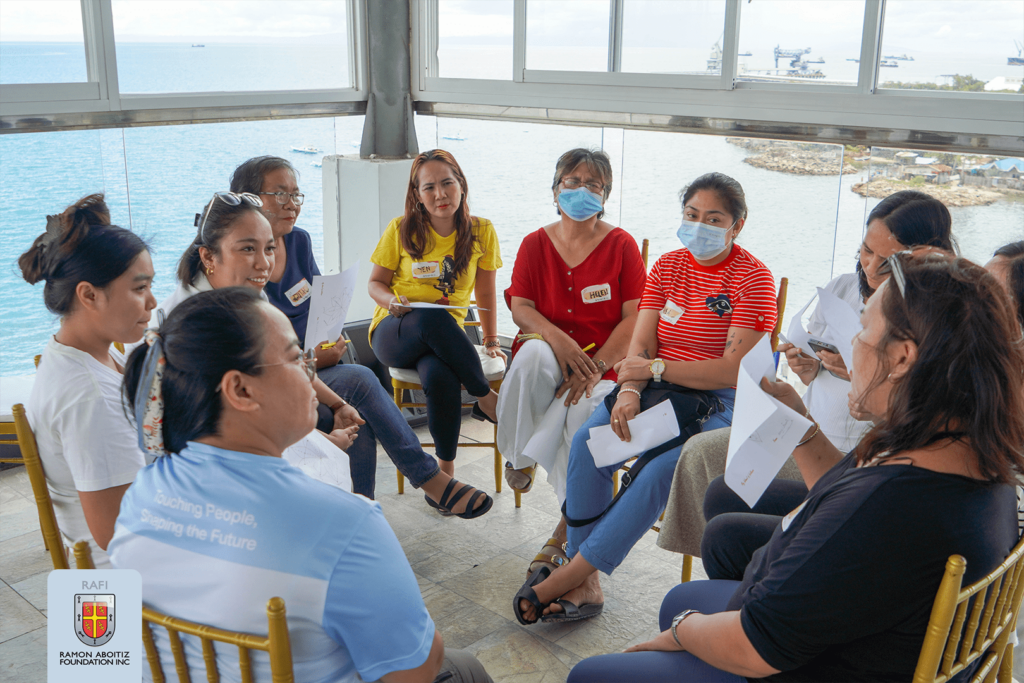
Psychosocial support should be an integral part in the relief and recovery stages when assisting affected communities by disasters. In the recent earthquake that struck northern Cebu, many survivors have expressed deep emotional trauma, especially as aftershocks continue to occur.
In this difficult time, the Ramon Aboitiz Foundation, Inc. (RAFI) understands the need for psychosocial support to help ease the fear, pain, and devastation experienced by the hardest-hit communities in Northern Cebu. As part of its response, RAFI supports the delivery of psychosocial first aid to survivors of the 6.9 magnitude earthquake in Cebu. Led by the Central Visayas Network of NGO’s (CENVISNET), the secretariat of Wellbeing Cluster Philippines, RAFI has provided logistical support and will help in facilitating partnerships with organizations capable of providing the much-needed psychosocial services.
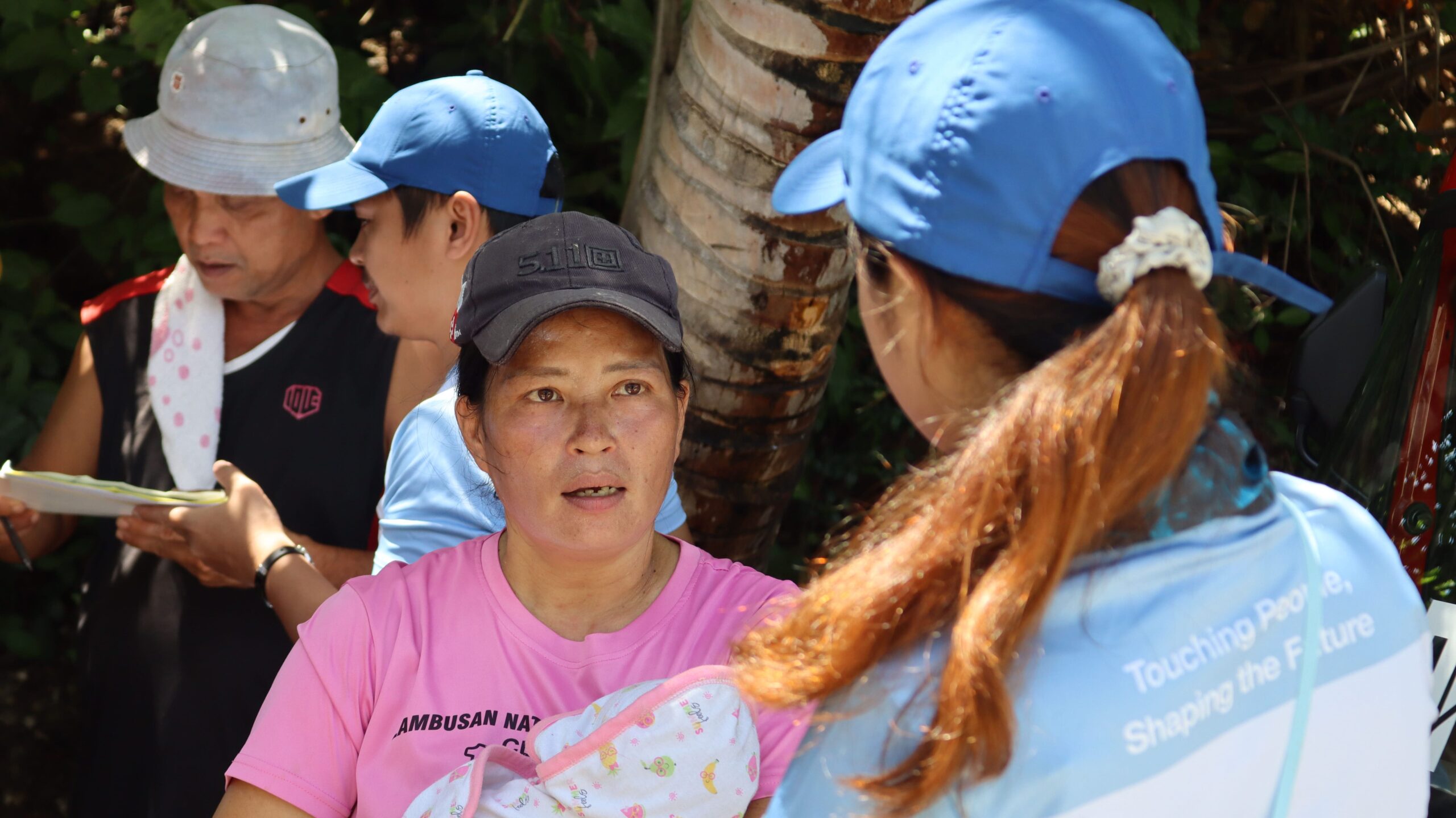
At A Glance
Psychosocial Support: What is It and Why is it important?
According to the, Psychosocial Framework of 2005 – 2007 of the International Federation defines psychosocial support as “a process of facilitating resilience within individuals, families and communities” enabling them to recover from the crises and better manage future challenges. The framework emphasizes the importance of respecting people’s independence, dignity, and existing coping mechanisms as this promotes the restoration of social cohesion and community structure.
In simpler terms, psychosocial support helps individuals and communities heal emotionally and psychologically after their lives have been disrupted by traumatic events.
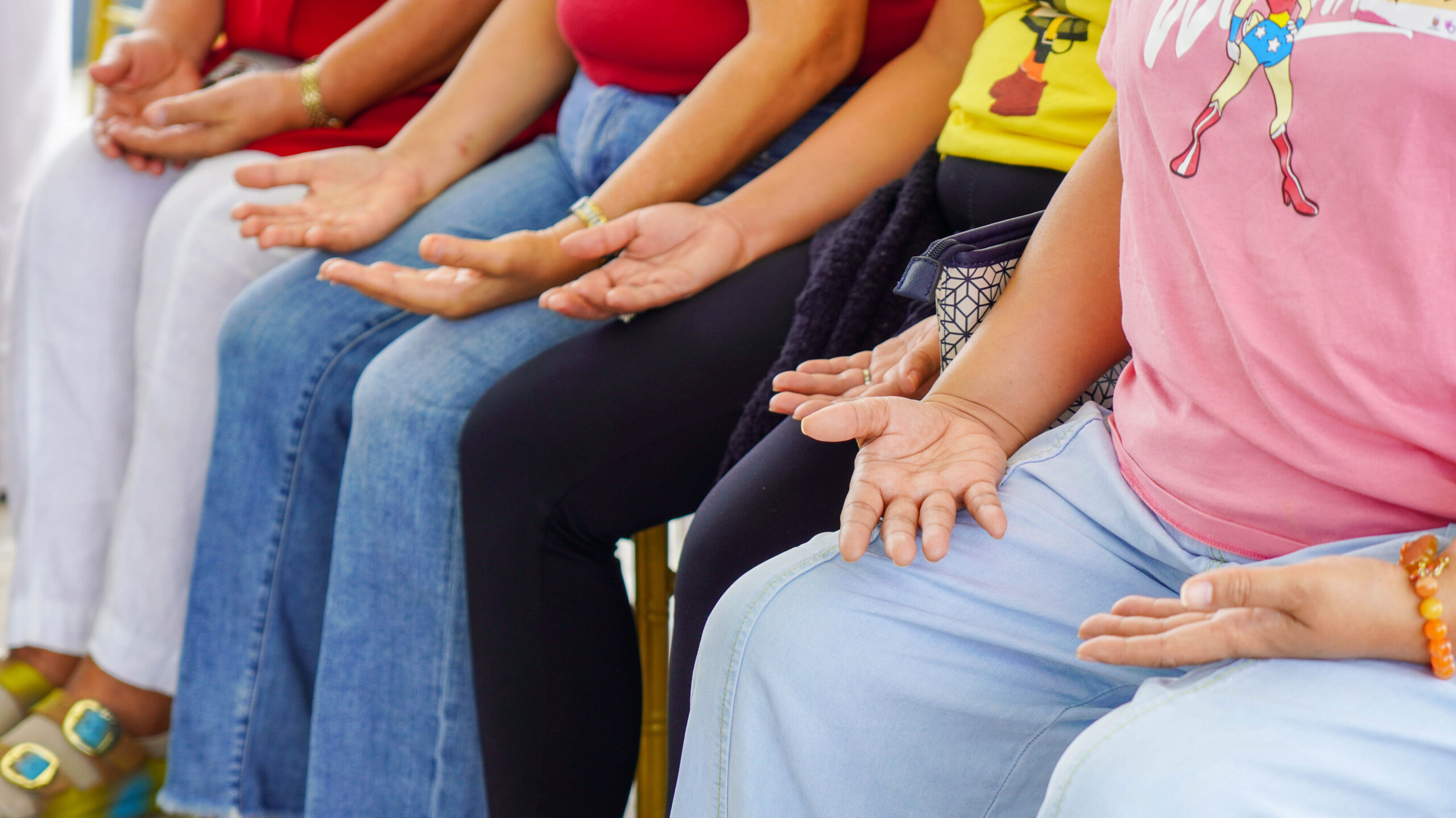
Why are psychosocial activities needed?
Disasters can deeply impact people’s lives, often leading to various forms of loss. These may include the death of loved ones, loss of control over one’s life and future, a diminished sense of safety, and the erosion of hope and motivation. People may also lose their dignity, access to essential services, property, social connections, and their means of livelihood.
Anyone who has lived through or witnessed a crisis is likely to experience some form of psychological or emotional impact. These responses can range from shock and grief to anxiety, confusion, or a feeling of displacement. The intensity and nature of these reactions differ from person to person and from one community to another, which also affects the kind of support or intervention that may be needed.
Source: International Federation Reference Centre for Psychosocial Support. (2009). Psychosocial Interventions: A Handbook.
From the Field: Salome from Bogo
Salome Anciano, 52, from Barangay Polambato in Bogo, shares how the earthquake deeply affected her and her husband. Even now, she finds it too traumatic to return to the street where they once lived, as it reminds her of the neighbors who lost their lives during the quake.
“Amo gi huna-huna ang amo nalang kaugalingon nga maluwas mi, sa among ka trauma di na namo masabtan unsa among buhaton, gusto man namo makatabang, unsaon man dili na namo ma kuan ang among kaugaligon, na trauma nami,” she expressed.
Salome explained that the recent earthquake continues to cause her anxiety. Even mild aftershocks bring fear and panic, especially for her husband, whose high blood pressure worsens under stress. Like many survivors, their greatest hope is simply to return to a normal, peaceful life.
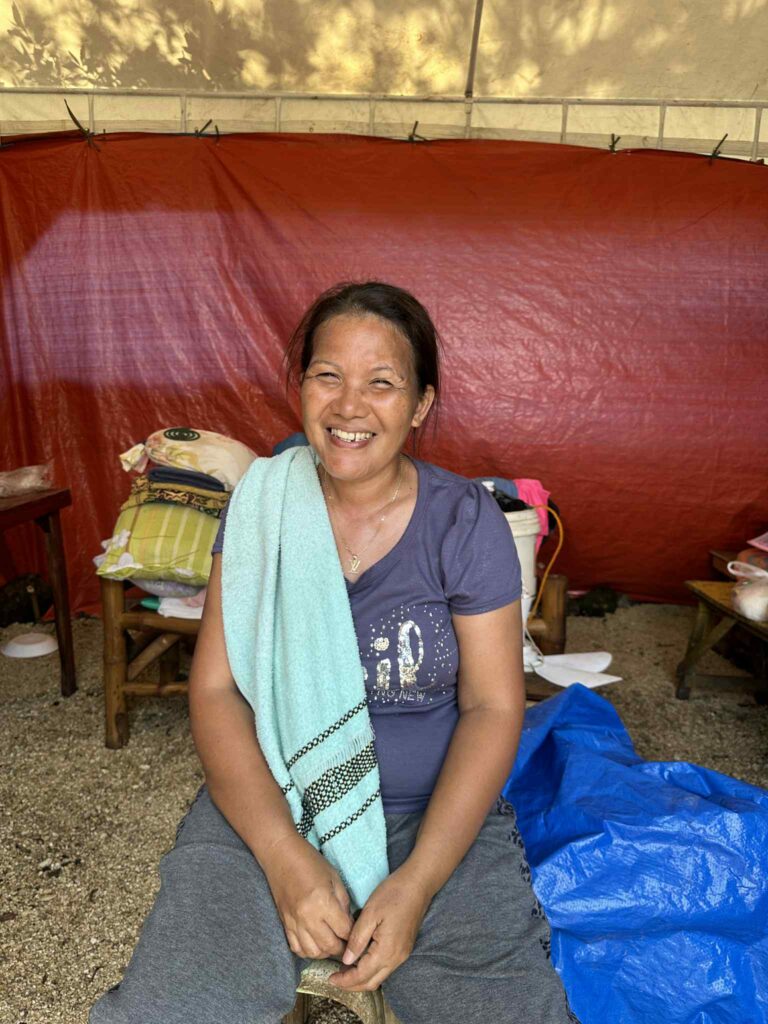
“Bisag pobre lang basta wala lang trahedya nga mahitabo. Bisag simple ra nga pangunabuhi mam, basta wala lay trahedya pareha sa nahitabo nato ron,” she said.
She also worries about their livelihood. Her husband is a tricycle driver, and even before the disaster, finding passengers was already difficult. Now, with roads damaged and fewer people out, their income has become even more uncertain.
Salome’s household is among those who received relief support from RAFI in Bogo.
The Road to Recovery: How Psychosocial Support Helps
Psychosocial support plays a crucial role in helping people like Salome rebuild their lives. By providing emotional and psychological care alongside material aid, survivors are given the tools to process their experiences, regain confidence, and find hope for the future. Interventions like these not only support immediate recovery but also strengthen long-term resilience in communities affected by disaster.
#DungansaPagbangon!
